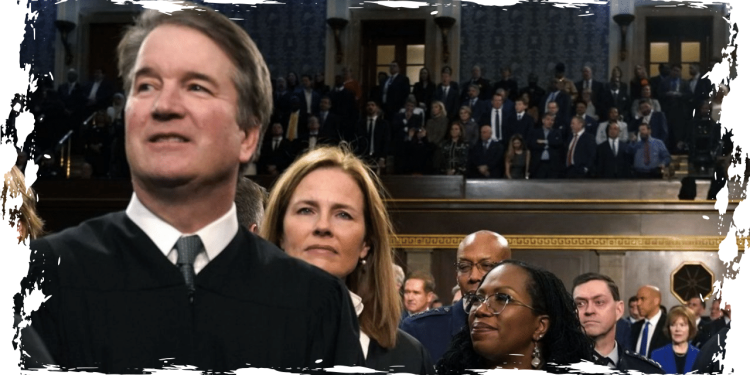On Thursday, in a 7-2 decision, the U.S. Supreme Court upheld the 2017 mandatory repatriation tax imposed on U.S. taxpayers who hold investments in certain foreign corporations.
According to the Supreme Court syllabus of the case, the tax was imposed as a one-time measure on certain American shareholders of American-controlled foreign corporations. The purpose was to tackle the issue of trillions of dollars of undistributed income that had been accumulated by those foreign corporations over the years.
The rate of 8-15.5% has been imposed by the MRT.
During 2006-2017, Charles and Kathleen Moore found themselves facing a $14,729 tax bill on their accumulated income from the shares they held in the American-controlled corporation, KisanKraft. In response, they decided to challenge the tax and take a stand against it.
According to the Supreme Court opinion, the Moores had invested $40,000, and by the end of the 2017 tax year, their accumulated income from the corporation had reached approximately $508,000.
The tax payment was made, however, they proceeded to sue, claiming that it went against the Direct Tax clause of the U.S. Constitution.
In its ruling, the Supreme Court concluded that the tax imposed did not surpass the constitutional authority of Congress. The court’s opinion stated that even though the corporation had not distributed the income, the Moores contended that they had not realized it.
The court ruled that KisanKraft was the one who received the income.
Justice Brett Kavanaugh, in the majority opinion, addressed the precise and narrow question of whether Congress has the authority to attribute an entity’s realized and undistributed income to its shareholders or partners and tax them accordingly. He affirmed that the answer to this question is yes, as established by Congress’s longstanding practice and the Court’s precedents.
Kavanaugh stated that Moore’s legal arguments were rejected and he further added that if taken to its logical conclusion, their argument could potentially render large portions of the Internal Revenue Code unconstitutional.
According to him, removing these tax provisions would result in a significant loss of tax revenue for both the U.S. Government and the American people, amounting to trillions of dollars.
In his conclusion, he stated that the Constitution does not mandate a financial catastrophe.
The government and the Moores have differing views on whether realization is a constitutional requirement. Kavanaugh’s opinion stated this discrepancy.
Kavanaugh stated that there is no need to resolve the disagreement over realization to decide this case. He made it clear that those potential issues are for another day and not addressed or resolved in this case.
According to him, the government has been levying taxes on shareholders of an entity for quite some time, including the undistributed income of the entity. This same practice has been applied to the MRT as well.
The majority opinion was opposed by Justices Clarence Thomas and Neil Gorsuch, who dissented.










